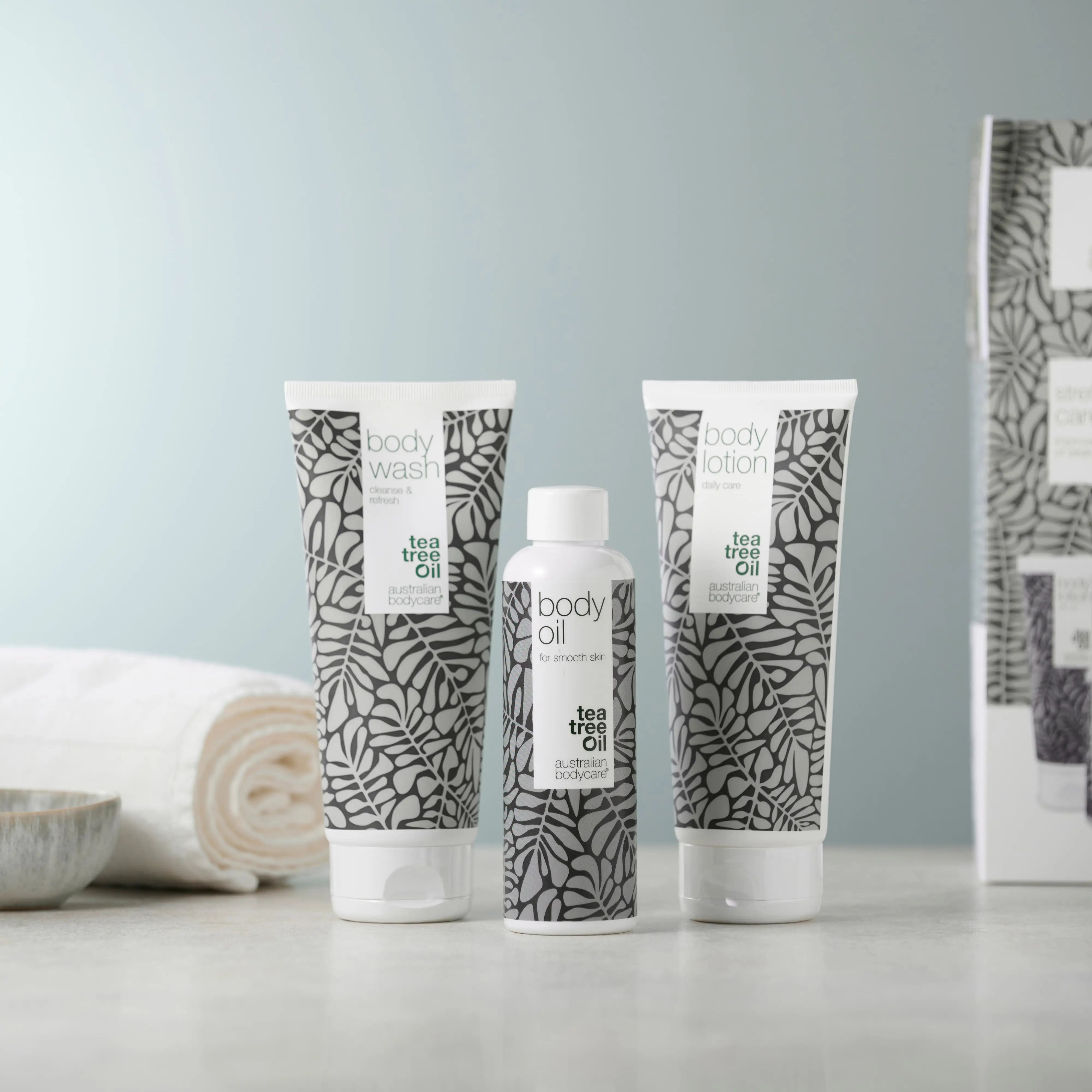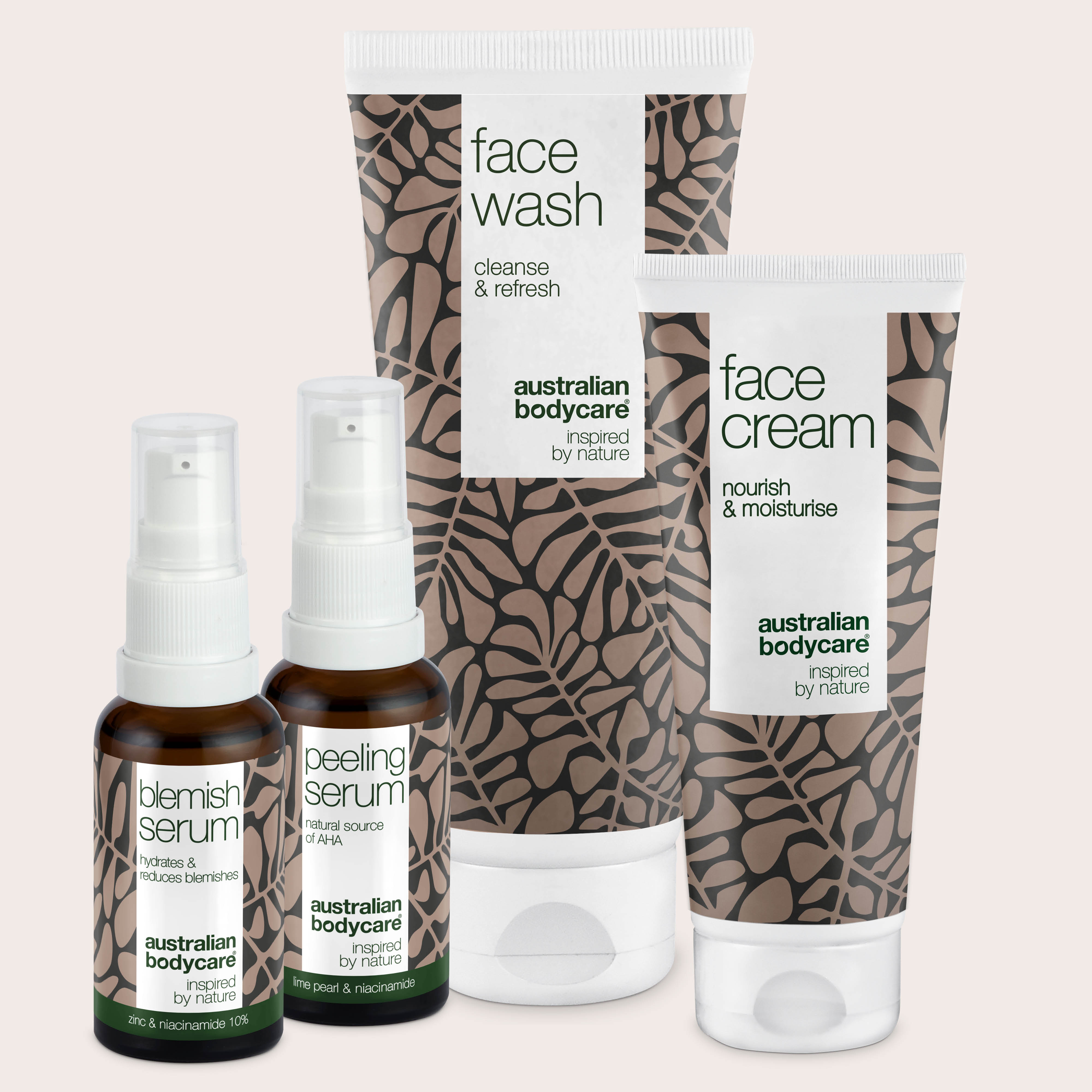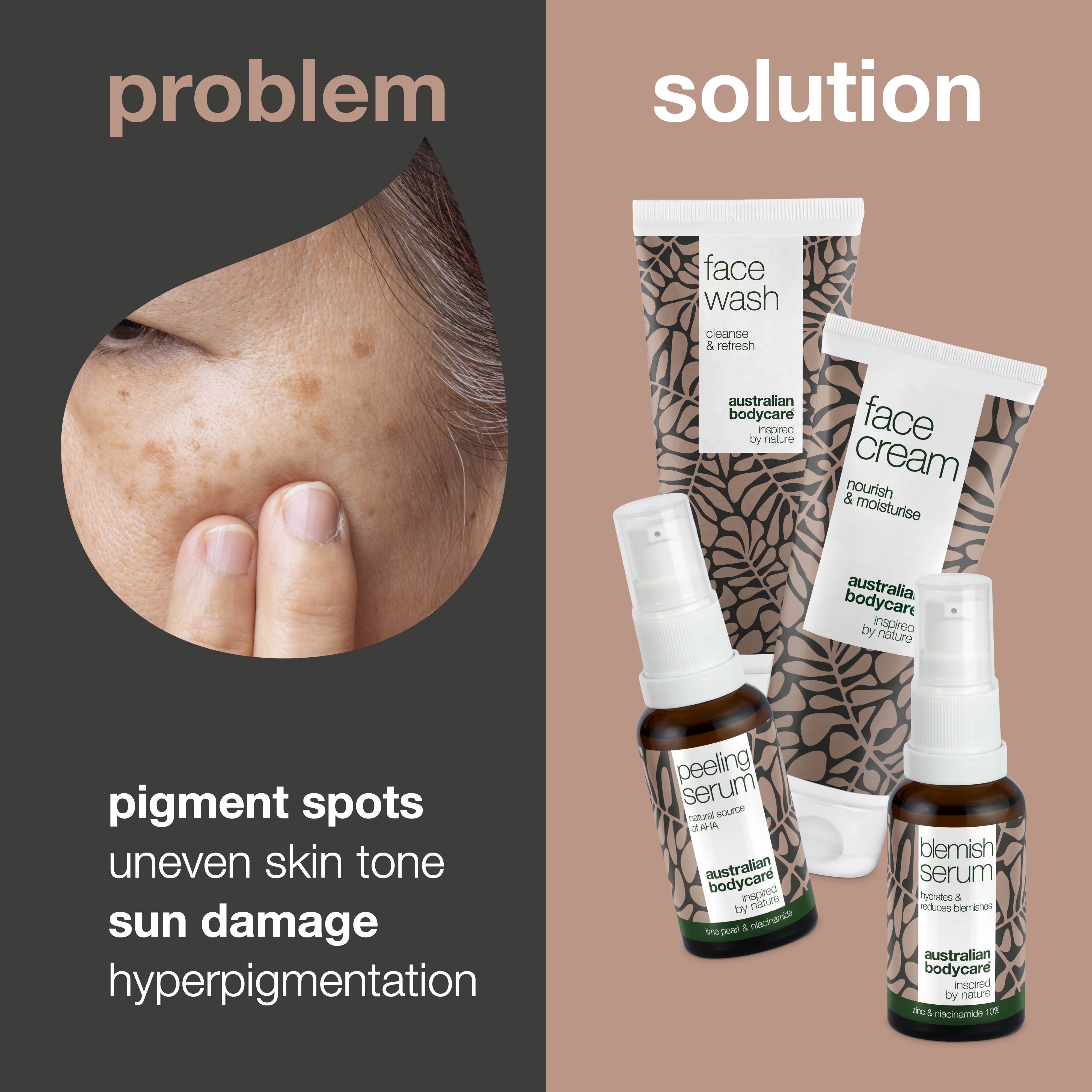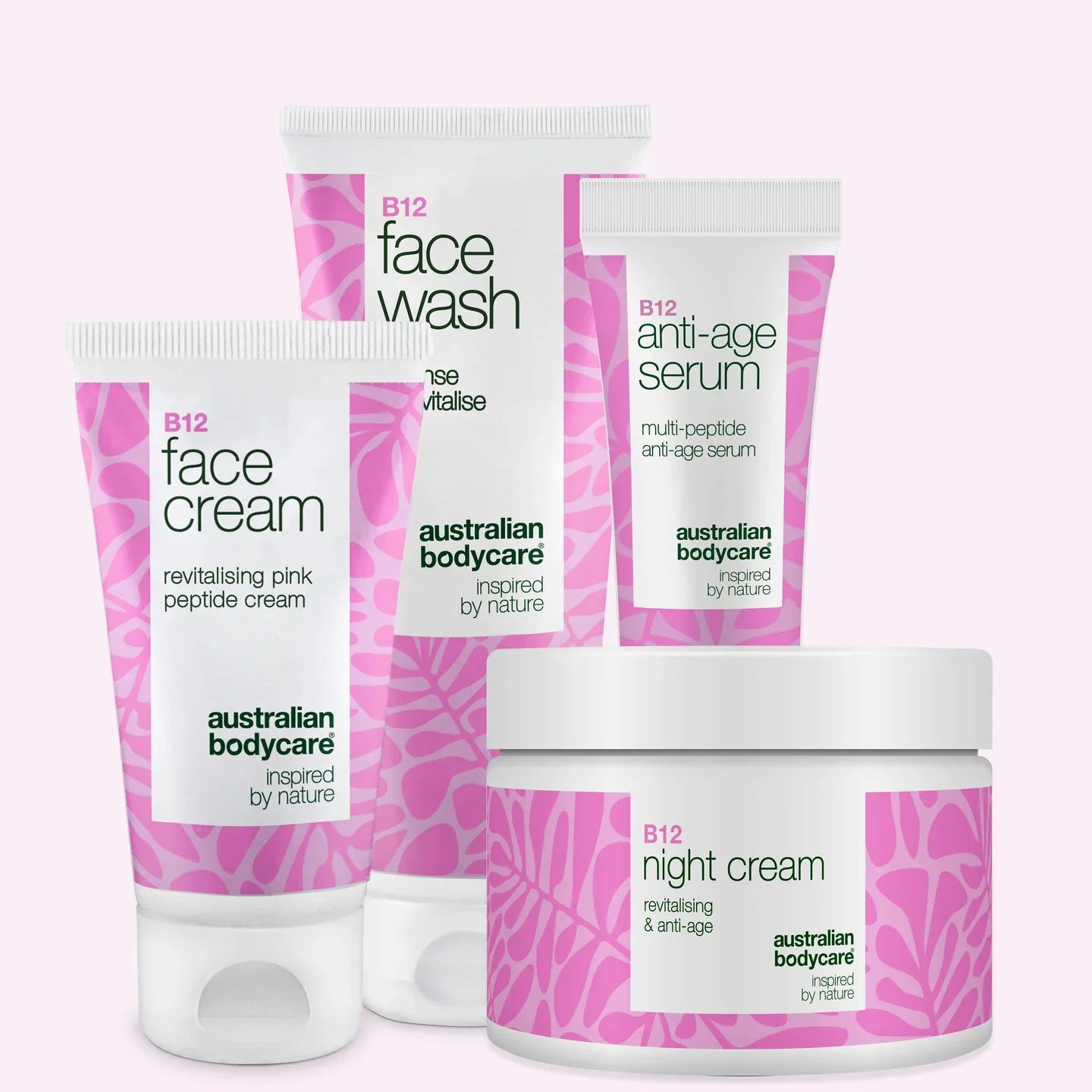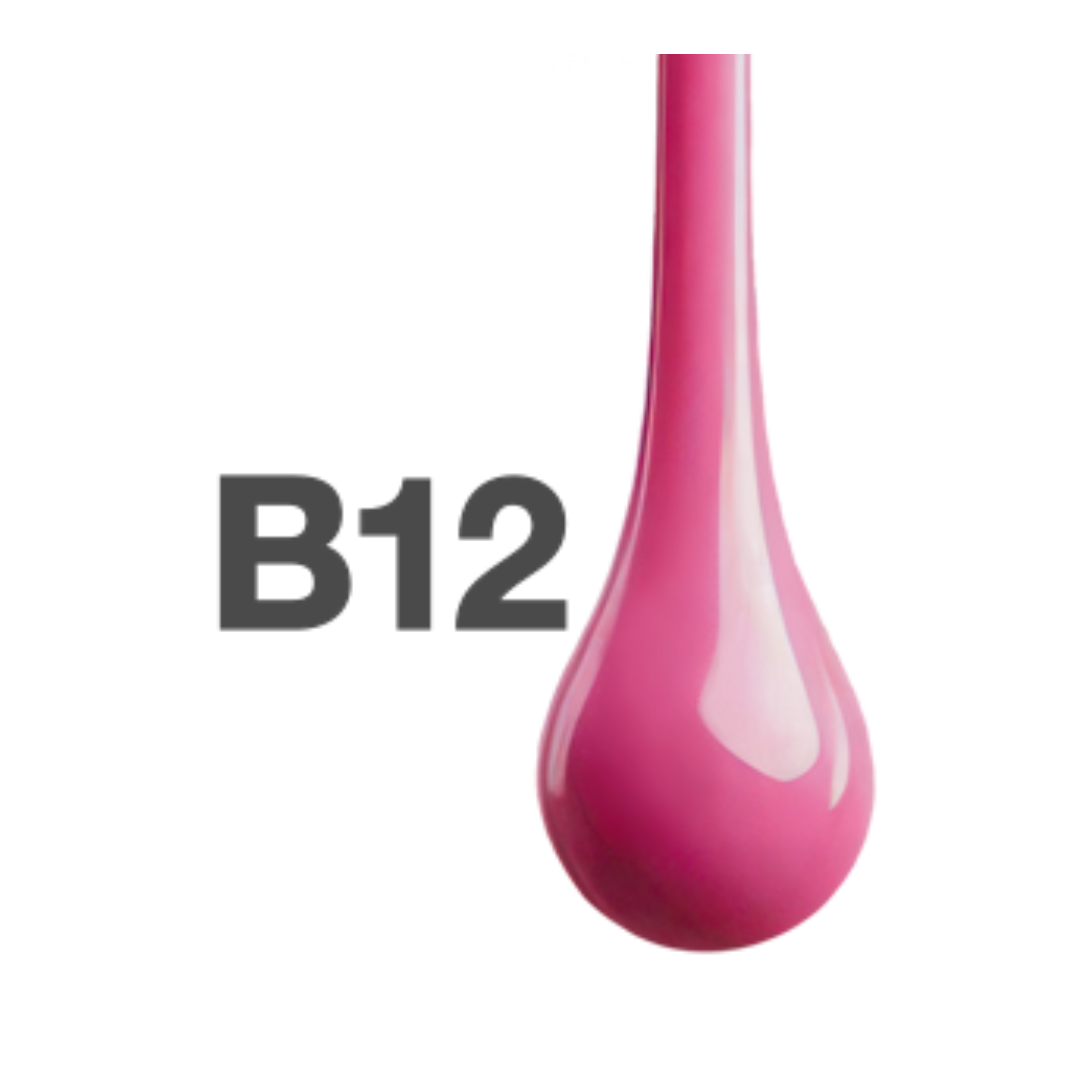Hyperpigmentation - this is how you even out your skin tone
Hyperpigmentation is a common skin problem for many people. It gives the skin a "cloudy" appearance and makes you look older than you really are. And who wants that?
Here we explain what hyperpigmentation is, why you get it and what you can do to treat it.
Table of contents
Treatment of hyperpigmentation - minimise the appearance of the dark spots
If you're feeling like a spotted Dalmatian, luckily there's some advice. While hyperpigmentation is a tricky condition and one of the most complicated in the field of skincare, there are ways to treat it.
There are several different methods for the care and treatment of hyperpigmentation.
What they all have in common is that they help to improve and even out your skin tone.
We'll take a closer look at the different treatments now.
Use high quality skin care to minimise hyperpigmentation
With a nourishing and healthy skincare regime, you can minimise the visibility of hyperpigmentation.
With Australian Bodycare's pigmentation kit, you get 4 products that reduce the visibility of brown spots. They won't remove the spots completely, but your skin tone will improve dramatically with regular use.
The effective ingredients help to even out and improve your skin tone, while nourishing and moisturising your skin thanks to Tea Tree Oil, natural AHA exfoliation and Niacinamide.
This is how to use the products:
1. If you wear make-up, remove it first. Then cleanse your skin with the face wash. Massage into damp skin, not forgetting the neck and upper chest. Rinse thoroughly and pat dry.
2. Apply a few drops of Niacinamide Serum to clean facial skin, neck and upper chest and massage in. The serum penetrates the skin quickly and works actively in the deeper layers of the skin.
3. Protect and moisturise the skin with face cream. Face cream works as both a day cream and a night cream. The cream is long-lasting, so a small amount goes a long way.
You should use the products twice a day for best results. Please note that it is normal for the skin to detoxify in the first few weeks, and you may therefore risk outbreaks of e.g. pimples in the first few weeks after you have switched products. This will gradually improve and stabilise after a month of consistent use of the products.
Use Peeling Serum 1-3 nights per week:
After facial cleansing, pat your skin dry. Now apply a few drops of Peeling Serum to your face - and possibly to your neck and chest if you also have pigmentation changes there.
Peeling Serum should not be washed off, but left on the skin. Leave on for 30 minutes, then apply a few drops of Niacinamide Serum. Massage in and finish with a protective layer of face cream.
You should only use the Peeling Serum a few times a week. For some people, once a week is enough, while others benefit from using it 3 times a week. Experiment and find the frequency that works best for you and your skin.
If you have brown patches on your skin and want to achieve a more uniform and even skin tone, you need to be patient.
Your skin won't change overnight, but with diligence and patience you can achieve great results. It can take 12-20 weeks for the pigment oil to leave visible results on your skin.
Minimise dark spots with bleaching cream
Bleaching cream is another method to reduce the visibility of hyperpigmentation. It is a more powerful treatment for the skin, so you need to be careful. This is also the reason why the cream is available only on prescription.
The cream bleaches the skin and it's important that you only use the cream on the dark areas - you can use a cotton swab to precisely target the areas of skin you want to treat.
Apply a thin layer once or twice a day, but pay attention to how your skin reacts. If it becomes red, irritable and itchy, it's a sign that you need to take it easy. Give your skin a break for a few days and start again slowly with longer intervals between applications.
Get a more even skin tone with cryosurgery
Cryosurgery is the light freezing of the skin with liquid nitrogen. This can help to minimise dark spots on the skin.
Extremely low temperatures cause ice crystals to form in the skin tissue. This tears the cells apart, causing the skin to peel and renew itself.
Reduce hyperpigmentation with laser treatment
Finally, if you want to reduce the visibility of hyperpigmentation, you can resort to laser treatment. This treatment is more expensive and more extensive, but can be a solution if your hyperpigmentation sits deep in the skin.
IPL laser is particularly suitable for hyperpigmentation. It stands for Intense Pulsed Light and is a light pulse treatment that sends concentrated pulses of light with great precision into the skin to "burst" the colour. This results in a more even and uniform skin tone.
Preventative methods
You cannot avoid hyperpigmentation if it is caused by hormonal factors, which unfortunately are not always under your control. The best thing you can do to actively avoid sun-related hyperpigmentation is to protect yourself from the sun's UV rays.
Hyperpigmentation from sun damage is self-inflicted, but if you protect yourself adequately, you can prevent dark patches from sun exposure.
- Wear sun protection such as a sun hat, light clothing, sunglasses and sun cream.
- Apply sun cream 20 minutes before you go out in the sun to make sure your sun protection has had time to work. Reapply every two hours or more if you sweat a lot.
- Stay under the shade when the sun is at its strongest in the midday hours between 12-15.
What is hyper pigmentation?
Hyperpigmentation is the professional term for an uneven skin tone with irregular and dark patches or areas on your skin.
Age spots, pigment spots, dark spots and sun spots are all the same term for hyperpigmentation, where there is an overstimulation of pigments in your skin. This causes it to look uneven, almost a bit dull and dirty.
Hyperpigmentation differs from freckles, in that it stays in the skin. Whereas freckles fade in the winter months and appear on the nose and cheeks in the summer, hyperpigmentation stays in the skin all year round. However, the sun's rays can emphasise the appearance of dark areas of skin.
It is not a skin type, but a skin condition that can affect anyone, regardless of age, gender and skin type.
What are the reasons behind hyperpigmentation?
Hyperpigmentation can have different causes. However, when your skin is affected by the condition and forms dark patches, it is because your skin is overproducing melanin. There can be several reasons for this.
Melanin is the substance that gives your hair and skin colour and is your body's own natural protection against harmful UV rays, for example.
Hyperpigmentation causes inflammation in the skin - it sends a message to the skin's melanocytes to start producing melanin. This leads to an overproduction of the brown pigment.
All of this is essentially a defence mechanism that kicks in as soon as the inflammation occurs, and the cells try to protect against the inflammation by producing melanin.
The reasons behind hyperpigmentation can be:
- Sun exposure. The sun is one of the main causes of dark patches on the skin. If you go without sun protection, even for a short time, melanin can accumulate and cause dark patches.
Even with sun protection, you risk hyperpigmentation if you expose yourself to the sun for too long.
- Hormonal changes. When you take the contraceptive pill or become pregnant, there will be a hormonal change. For some people, this change will cause dark patches on the skin.
- Post-inflammatory hyperpigmentation. If your skin is damaged, there is also inflammation, which can show up as localised darkening of the skin. This is called post-inflammatory hyperpigmentation.
It can be caused by burns, acne, deep cuts and blisters.
The causes of the darkening of your skin are related to the different types of hyperpigmentation you can get. We'll take you through them here.
What types of hyperpigmentation are there?
You can have different types of hyperpigmentation. They typically fall into three categories:
- Sun damage
- Melasma
- Post-inflammatory hyperpigmentation
You can have one of the variants on your skin, but you can also have all three at the same time. Learn more about the three types here.
Sun damage
Sun damage is hyperpigmentation of the skin that occurs if you have been in the sun for a long period of time.
The sun is your skin's number one enemy and the dangerous UV rays can leave their mark on your skin as dark patches and spots.
Melasma
Melasma is the term for the type of hyperpigmentation that occurs during hormonal changes. This can happen during pregnancy, if you are taking contraceptive pills or hormone replacement therapy.
Many pregnant women find that the dark spots and patches on their skin make them look like they are wearing a dark, cloudy mask.
Post-innflammatory hyperpigmentation
Post-inflammatory hyperpigmentation is a condition that causes dark patches on the skin after injury. This can be from stings, bites or acne. It is an inflammatory condition with inflammation of the skin.

